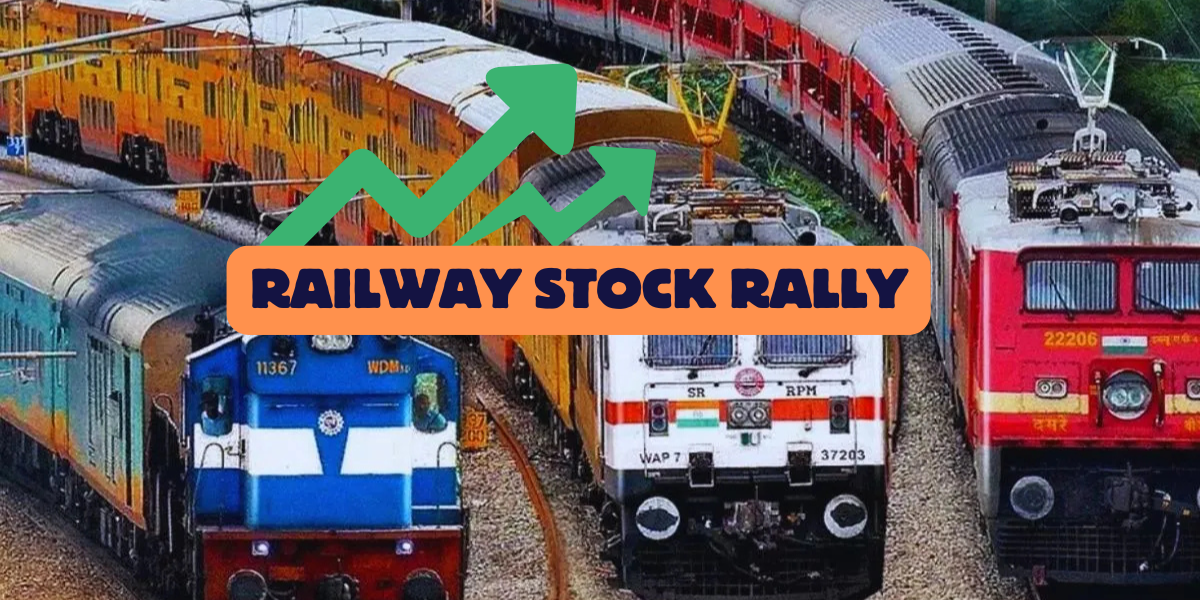
Railway stocks have been on a tear lately, defying the broader market trend and capturing investor interest. As of 12:55 PM on May 16, 2025, companies such as Titagarh Rail Systems surged by 13%, followed by Rail Vikas Nigam Ltd (RVNL) rising 9%, RailTel Corporation of India gaining 7%, Jupiter Wagons up 8%, and IRCON International and Indian Railway Finance Corporation (IRFC) each climbing 6%.
So, what’s fueling this railway rally? Let’s break it down.
RVNL secured a ₹115.8 crore contract from Central Railway for upgrading electric traction systems, critical to freight capacity enhancement.
IRCON International won a ₹51.6 crore project from North Western Railway to implement a Remote Diagnostic and Predictive Maintenance System, signalling Indian Railways’ focus on modernisation.
When companies win such orders, it builds investor confidence in their future revenues and project execution capabilities, often pushing stock prices higher.
IRFC is back in favor with investors — not just for its stable dividend payouts and government backing, but also due to a major funding development.
The government has approved a ₹10,000 crore deep-discount bond issuance for IRFC. This marks a strategic shift in funding as IRFC expands beyond railways into power and infrastructure, making it a diversified and appealing bet for long-term investors.
RailTel also reported robust Q4 FY25 results:
Revenue grew 57% YoY to ₹1,308 crore.
Net profit rose 46% YoY to ₹113 crore.
EBITDA margin saw a slight dip to 13.7% from 14.%.
Despite the margin pressure, the strong topline and bottom-line growth reassured investors of RailTel’s operational strength.
The Indian government continues to prioritize railway modernization — from electrification and semi-automated systems to dedicated freight corridors.
Union Minister Nitin Gadkari’s push for integrated transport infrastructure is strengthening the synergy between railways, roads, and ports — a crucial driver for freight efficiency. This infrastructure boom translates into more contracts, and that’s keeping railway stocks attractive.
A more stable global environment is encouraging long-term bets in infrastructure:
Progress in India-U.S. tariff discussions is seen as a positive sign for trade and investment.
The broader market is seeing momentum too, with NSE Midcap and Smallcap indices rising over 20% since April 7, 2025. Railway stocks, many of which fall in this bracket, are benefiting from this broader rally.
RVNL's board meeting on May 21 is expected to consider a final dividend for FY2024–25.
Dividend declarations often act as short-term catalysts, signalling financial health and strong cash flows. For public sector stocks, dividends are particularly important to institutional and retail investors alike.
Indian Railways is evolving through sweeping reforms:
Rollout of Vande Bharat trains
Upgraded stations to global standards
Use of AI and predictive analytics for smarter maintenance
Dedicated Freight Corridors to reduce congestion
Widespread electrification of routes
These changes improve efficiency, safety, and profitability, providing a structural tailwind for listed railway companies.
Despite the recent gains, many railway stocks had corrected significantly from their highs:
RVNL is still down nearly 38% from its July 2024 high of ₹647.
Similar corrections were seen in IRCON, IRFC, and others.
Such dips — when fundamentals remain strong — are often viewed as entry points by long-term investors looking to “buy the dip.”
There’s a broader shift in how investors view public sector undertakings (PSUs). Once considered sluggish, PSUs in railways, defence, and power have shown improved performance, better governance, and higher transparency.
Railway PSUs like IRFC, RVNL, IRCON, and RailTel are now seen as leaner, more agile, and capable of delivering shareholder value.
Despite today’s rally, there’s a note of caution. The FY26 Union Budget maintained a flat allocation for the railway sector, which could limit the pace of new project announcements in the near term. This may cap some upside in the short to medium run.
Disclaimer: This article is meant for informational purposes only and should not be considered investment advice. Please consult a certified financial advisor before making any investment decisions.
